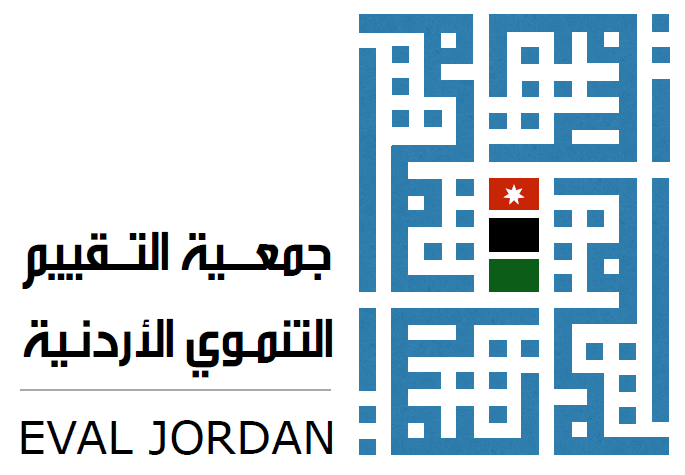In Partnership with
 |
 |
 |
Global Evaluation Agenda 2016-2020
1. Strengthening an Enabling Environment for evaluation
- Promote equity focused and gender responsive evaluation policies and systems at all levels
-
Promote Independent evaluation units at government level, particularly a national performance management unit established under the presidency or the prime minister’s office.
-
Strengthen national data management system which contributes to evidence based decision making.
-
Expand partnerships including with parliamentarians and policy makers to mainstream equity focused and gender responsive evaluation at national level.
-
Ensure the quality of evaluation through credibility, innovation and human resource development
-
Use high quality advocacy to promote equity focused and gender responsive evaluation culture particularly through media.
-
Evaluation units should be established within parliaments to provide briefings and technical inputs to parliamentarians.
-
Generate a national “State of Evaluation” report with a view to assess the current status of evaluation at the national level.
2. Strengthening institutional capacities of VOPEs and Civil society
- Institutional capacity building of VOPEs and CSOs to promote equity focused and gender responsive evaluation.
- Strengthen knowledge sharing and networking
- Funding support and resource development
- VOPEs to build partnerships with
- Champions such as parliamentarians and government key players
- Academic institutions to start joint university courses on monitoring and evaluation
- Encourage formation of national evaluation societies and their interaction with regional and professional evaluation organizations for knowledge and product sharing. Continue to invest in emerging regional societies by offering support.
- Build on and enrich the existing MyM&E web portal http://www.mymande.org/elearning to further offer of e-learning, resource materials and webinars on the theory and applications of gender responsive and equity focused evaluations.
3. Strengthen Individual evaluator capacity development
- Professionalization with certification of evaluators and accreditation of courses/institutions. Evolve a set of national competencies in tune with international standards/ competencies frameworks. There should be an accreditation and certification system to ensure availability of competent professional evaluators.
- Develop a cohesive professional learning programme that explicitly aligns with the wider strategic programme and EvalYear 2015 objectives. Offer a wider range of opportunities for learning including inter- and multi-disciplinary speakers.
-
Development of young/ emerging evaluators: Establish training courses for emerging evaluators; Establish a mentoring programme between young evaluators and experts; hire emerging evaluators (shadow evaluator) together with experienced evaluators for evaluation assignments.
-
An e-Library such as UN Women evaluation portal http://genderevaluation.unwomen.org should be strengthened to serve as a knowledge and resource centre accessible to all professional evaluators to facilitate this process of knowledge acquisition. E- library should be enriched by contributions from all professional evaluators and experiences of various stakeholders.
-
Promote sharing and networking.
-
Promote innovation of theory and new tools.
4. Inter-linkages between enabling environment, institutional capacities and individual capacities
- National, regional and global partnership initiatives for equity-focused and gender-responsive evaluation (i.e. EvalGender) is the key strategy to ensure that enabling environment, institutional capacities and individual capabilities will mutually reinforce each other. The partnerships should include governments, parliamentarians, VOPEs, civil society, United Nations and any other interested group. It is also important that resource materials are available in different languages at least in UN languages.
- VOPEs are the main entities that should connect these three levels together and lead the process at country level. VOPEs have the coordination and communication role with other stakeholders.
- Promote national evaluation agenda/ plan which can link different aspects together.
- There should be a push for a national plan for equity focused and gender responsive evaluation.
- There should be a resource mapping with regard to capacity development in equity focused and gender responsive evaluation.
- Equity focused and gender responsive evaluations are to be mainstreamed in the national planning with focus on social inclusion and gender equality.
Annex A: List of meetings (virtual and face-to-face) in which consultations were carried out and priorities presented in this document identified/discussed:
- Global on-line consultation facilitated by EvalPartners, UNEG, IOCE, IDEAS, UN Women and GEF, September/November 2014
- Roundtable consultation on the challenge as to how the global evaluation community can contribute to ensuring that evaluations play a key role in planning and implementation of policies and programmes for attaining future sustainable development goals at national, regional and international levels, by Institute of Applied Manpower Research (IAMR), New Delhi, India in collaboration with National Planning Commission, Government of India, September 26, 2014.
- EvalPartners Management Group meeting, Dublin, Ireland from 29-30 September 2014,
- Australasian Evaluation Society Leaders' Meeting, 2014 AES Conference.
- Africa Gender and Development Evaluation Network (AGDEN), Addis Ababa, Ethiopia,2014
Annex B: EvalPartners Conceptual Framework on evaluation capacity development:
EvalPartners conceptual framework highlights importance of enabling environment; institutional capacity and individual evaluator competencies while promoting inter-links between these components, as well as the demand and supply side. For additional information, please read http://www.mymande.org/sites/default/files/Evaluation%20and%20civil%20society_v9_final_ web.pdf
Annex C: four Strategic questions identified to facilitate the consultation
The consultation, building on the existing conceptual framework on evaluation capacity development, addressed the following four questions:
- What are the three most important strategies to ensure governments and parliaments improve policy making and implementation, by demanding and using equity-focused and gender responsive evaluation in decision making?
- What are the three most important strategies to ensure that Civil Society Organizations in general, and Voluntary Organizations for Professional Evaluations in particular, have stronger institutional capacities to contribute to equity-focused and gender-responsive national evaluation systems?
- What are the three most important strategies to ensure that individual evaluators have the capability to produce good quality, context-relevant, equity-focused and gender-responsive evaluations?
- How to ensure that enabling environment, institutional capacities and individual capabilities will mutually reinforce each other? And how to ensure that very diverse multi- stakeholders work in partnership based on their own value added and comparative advantages?











.jpg)





















.jpg)

.jpg)

.jpg)


